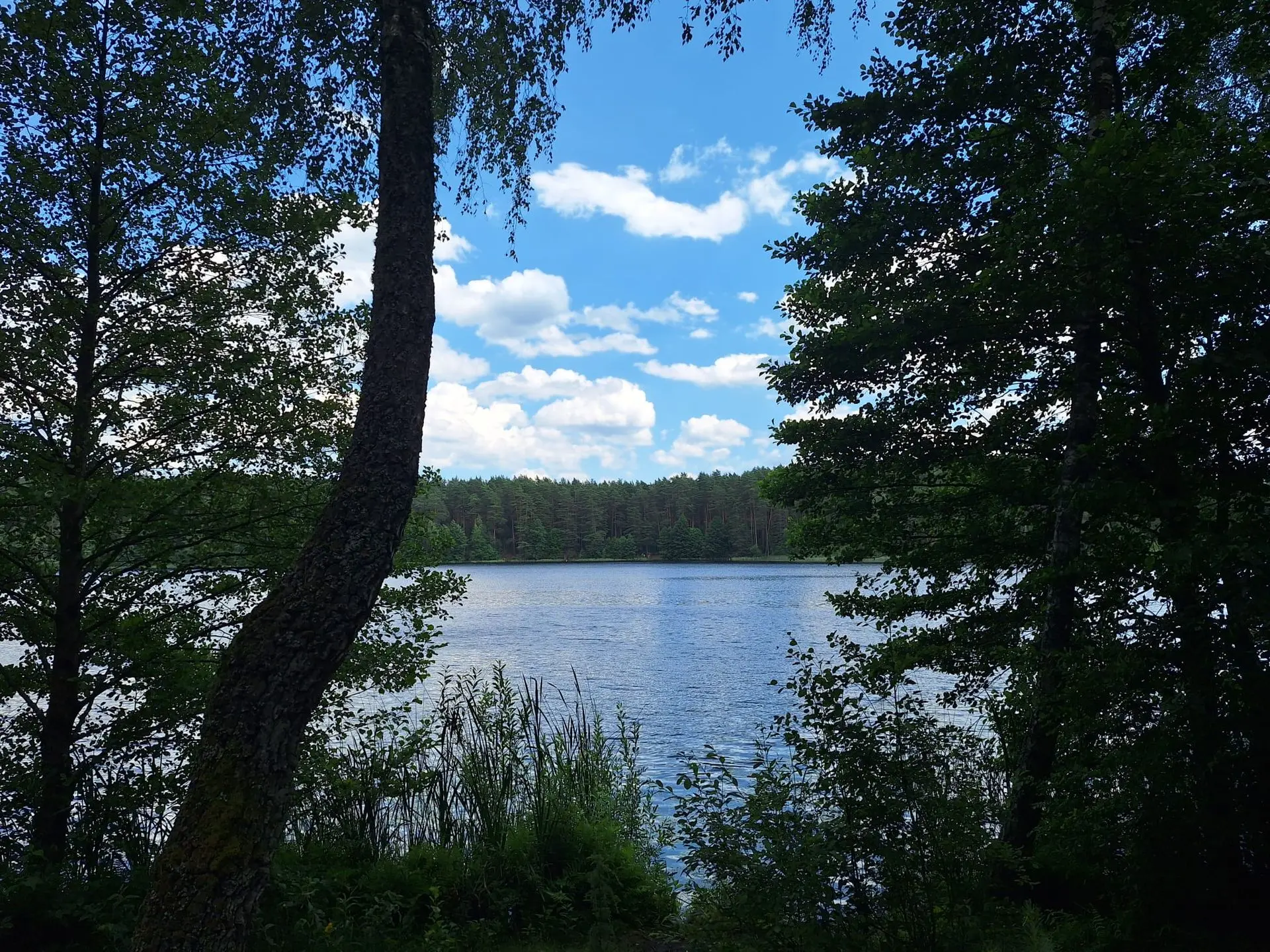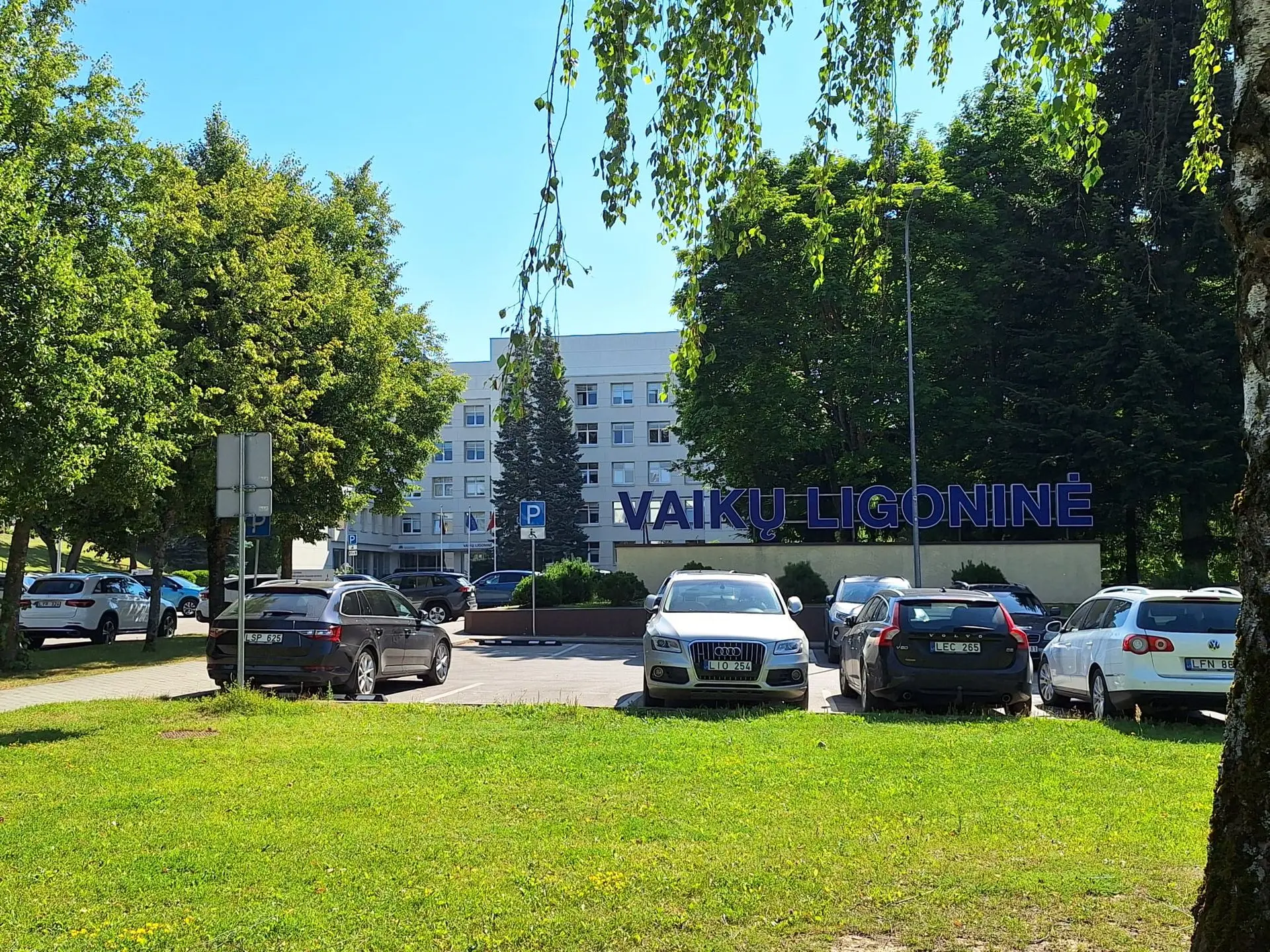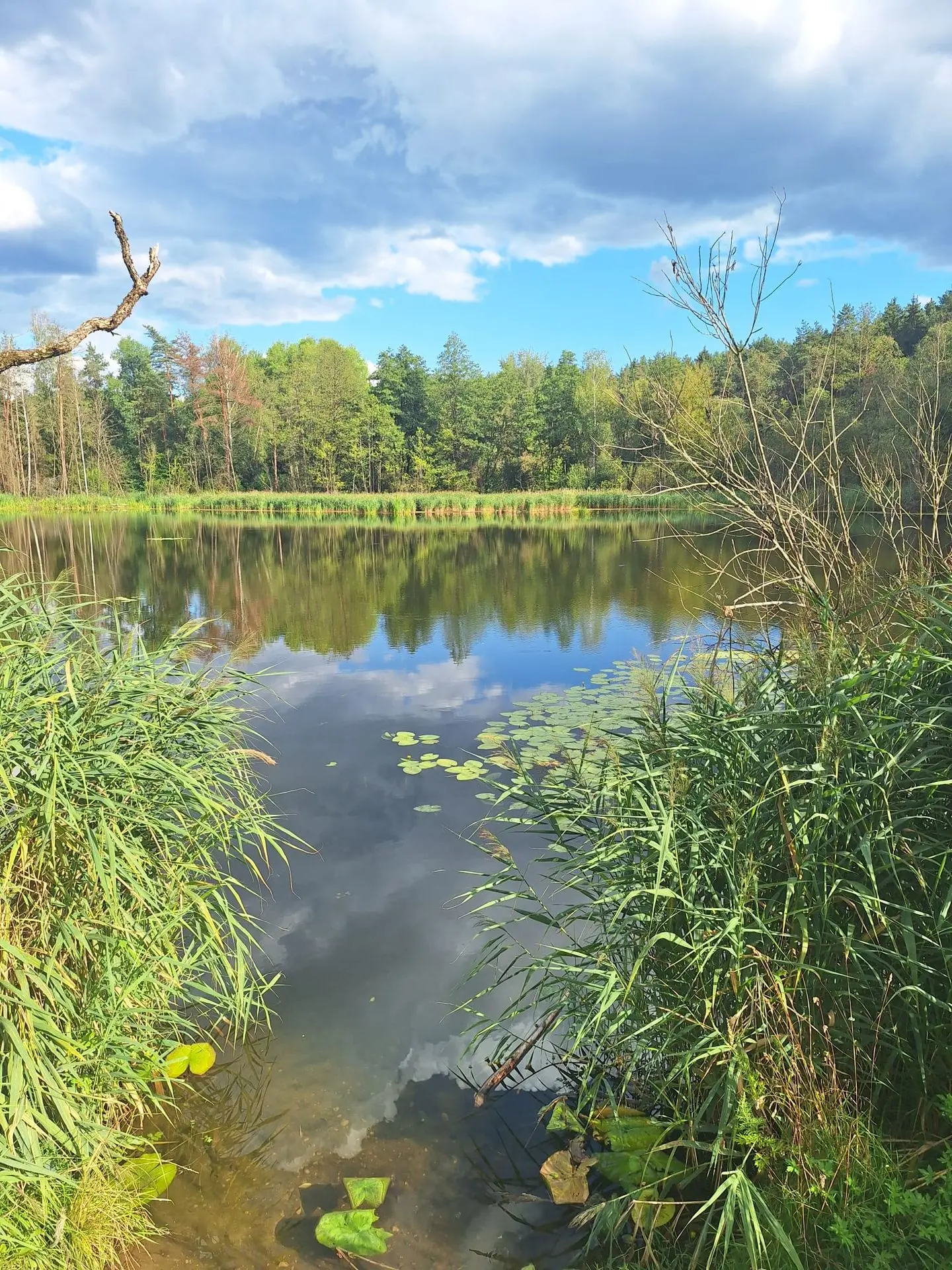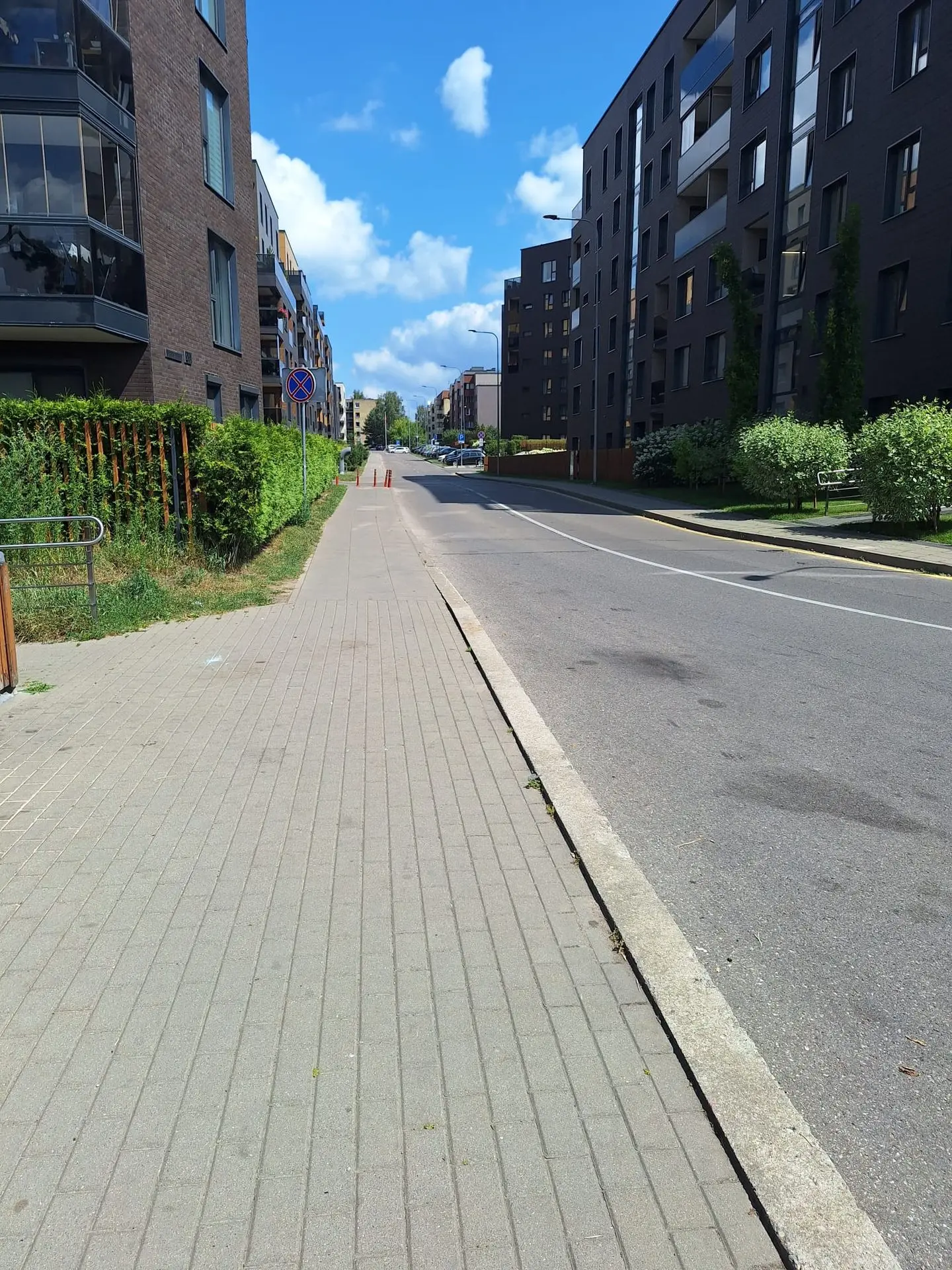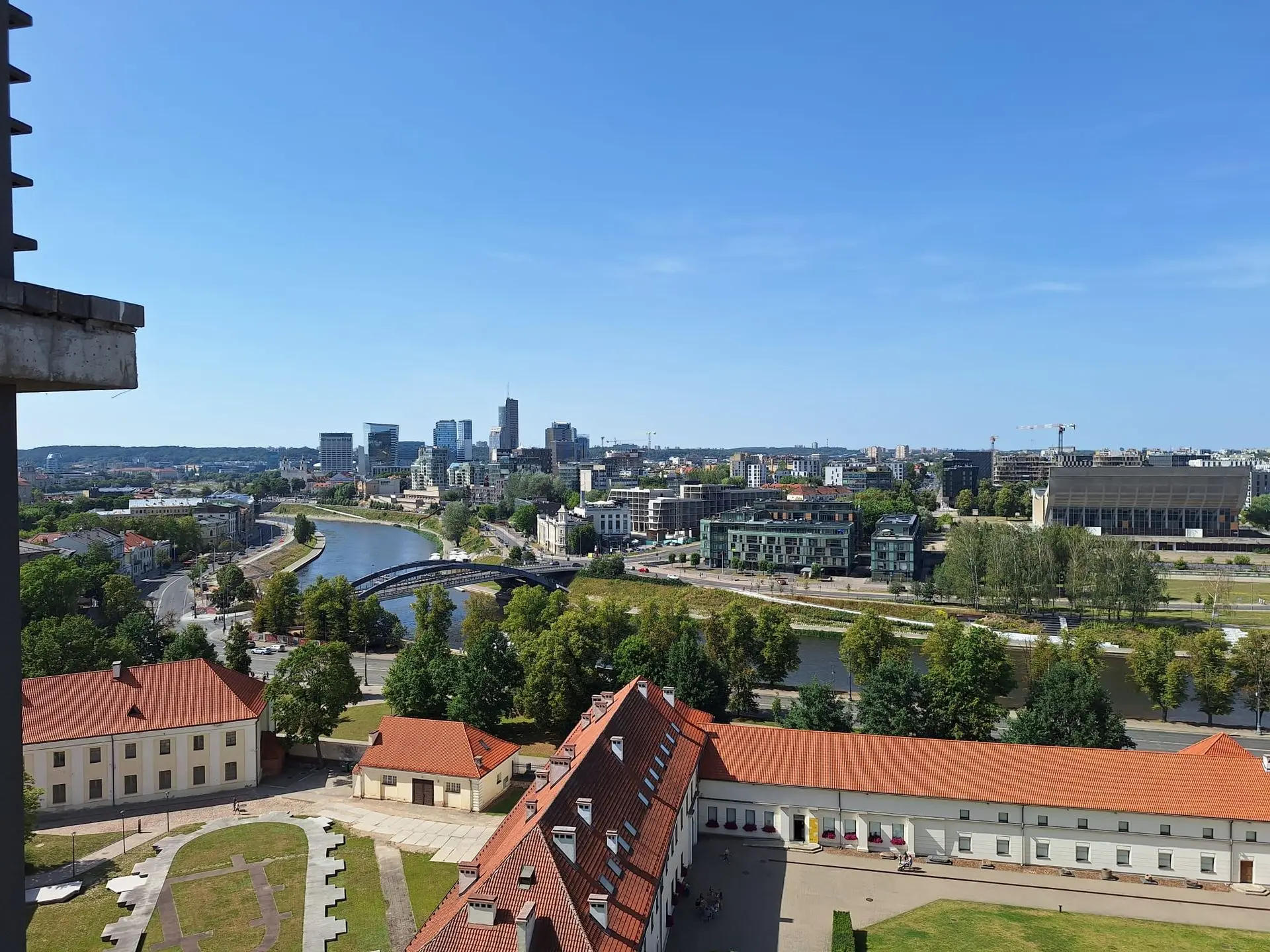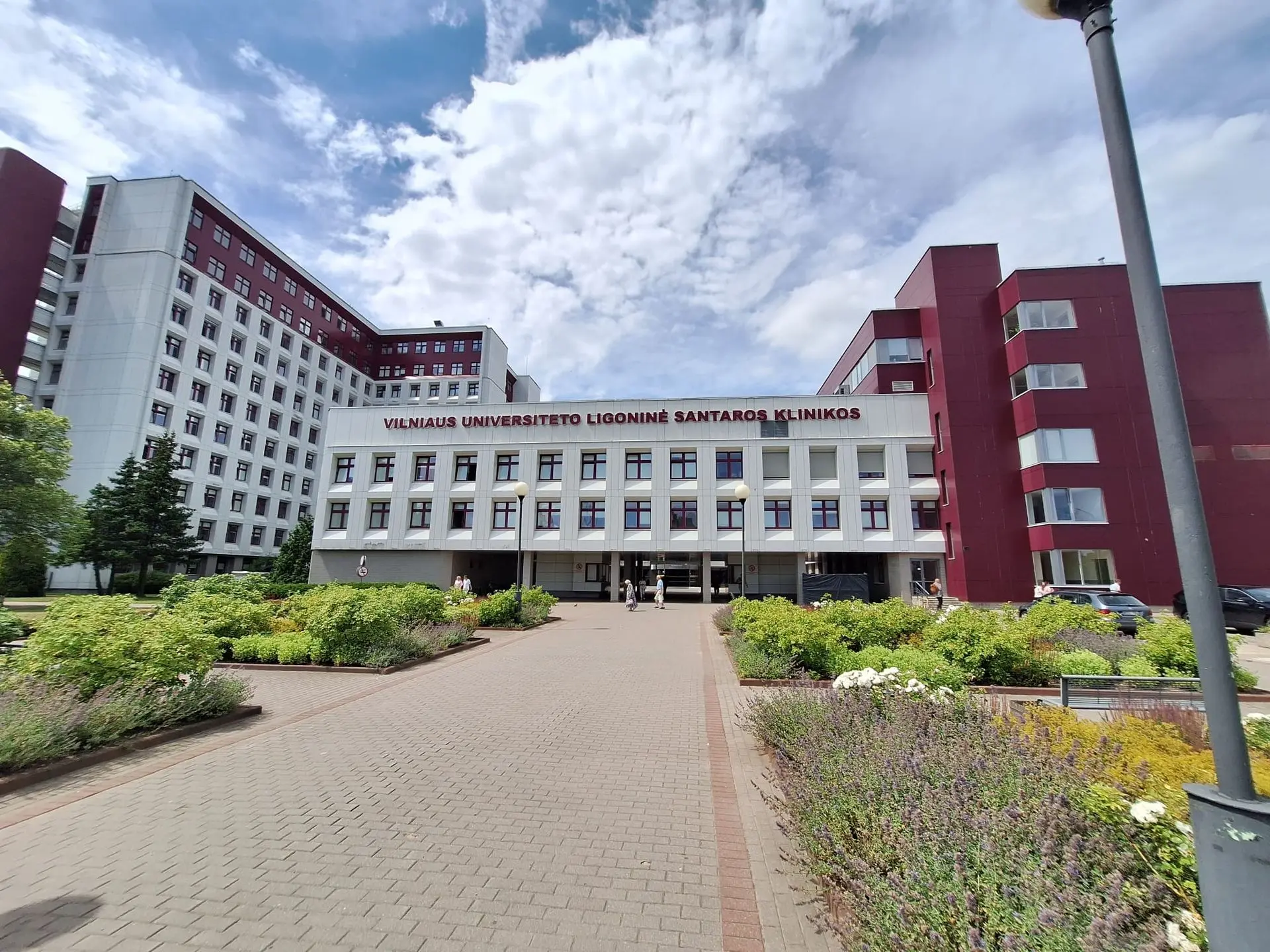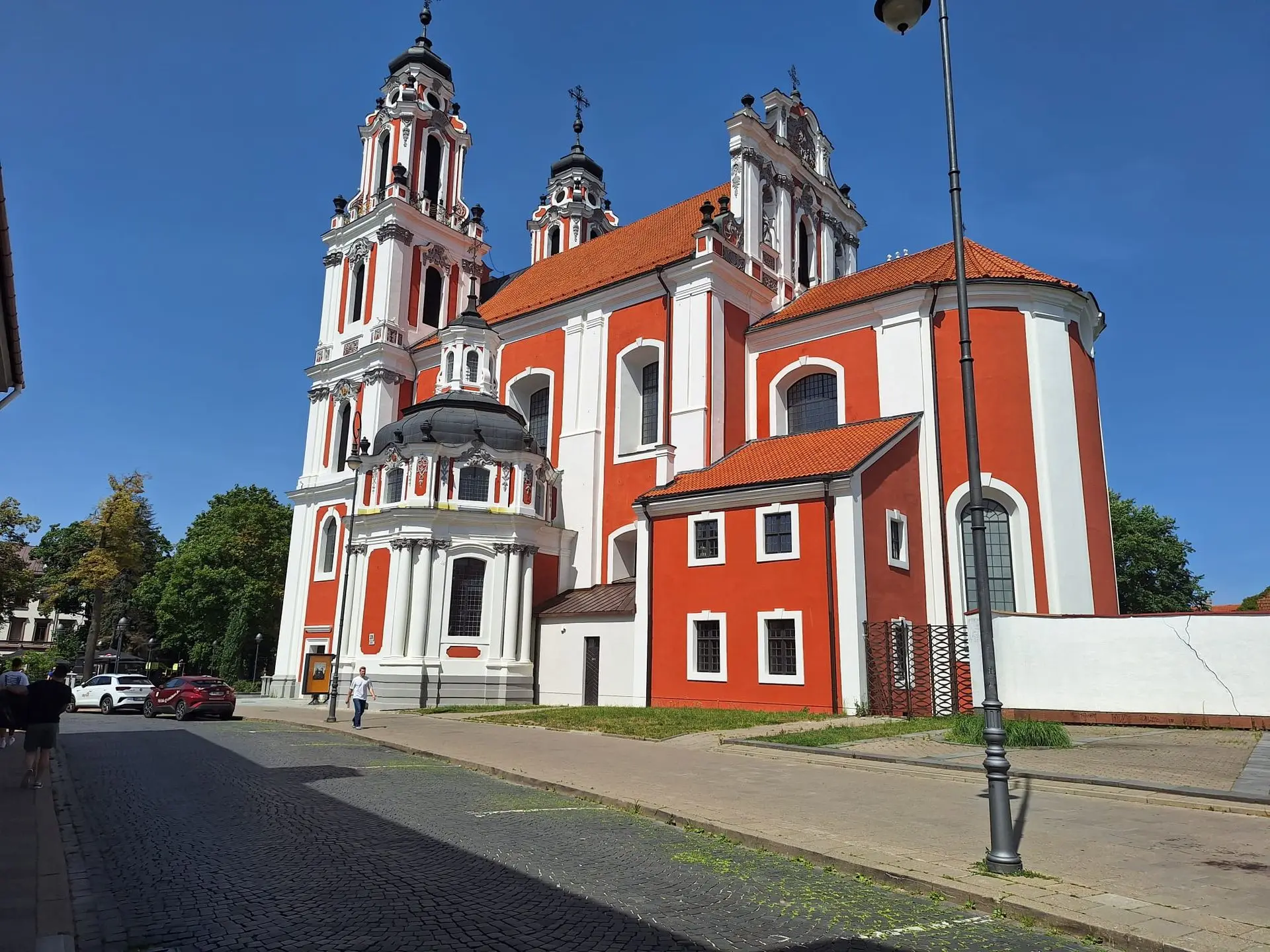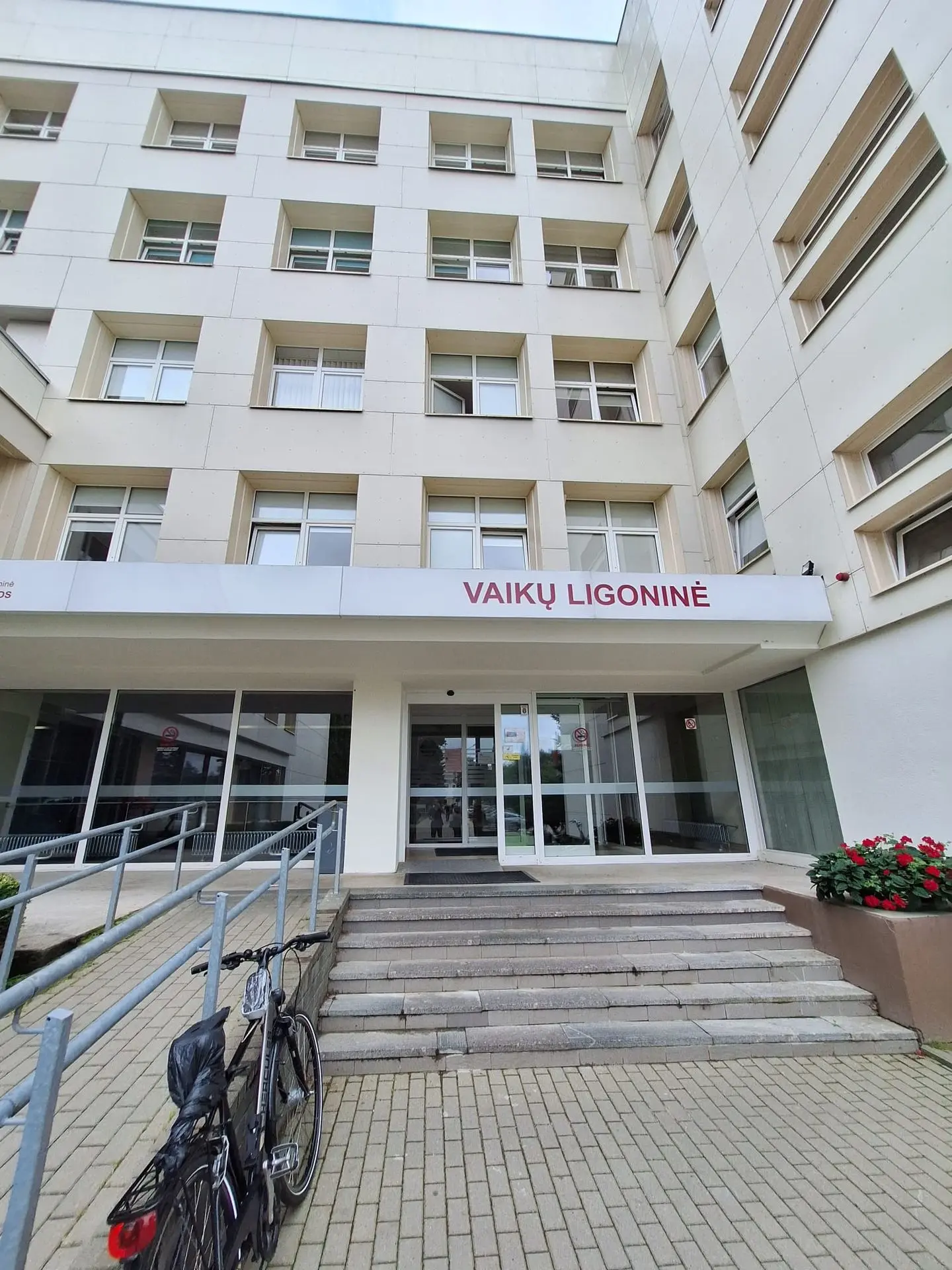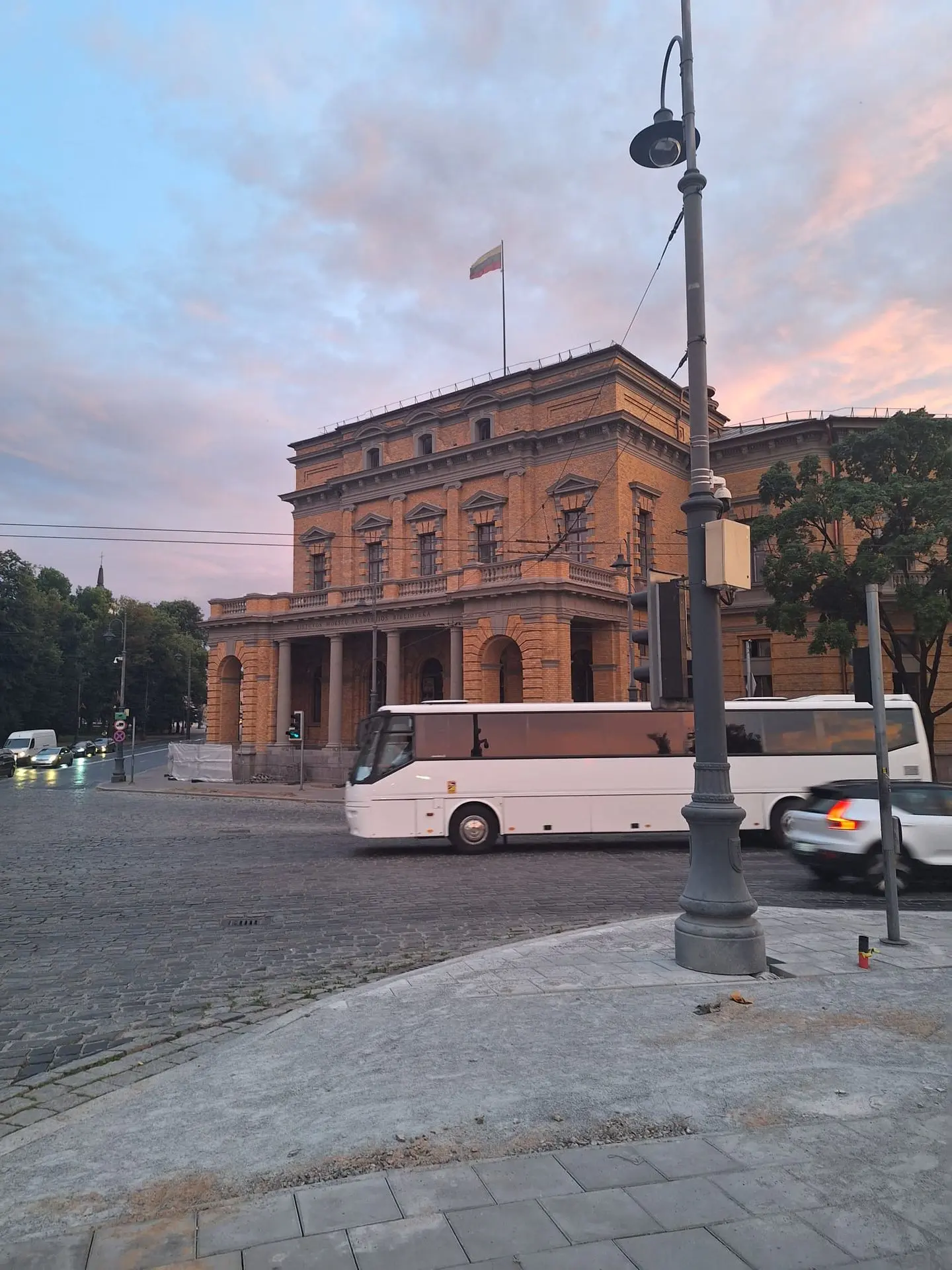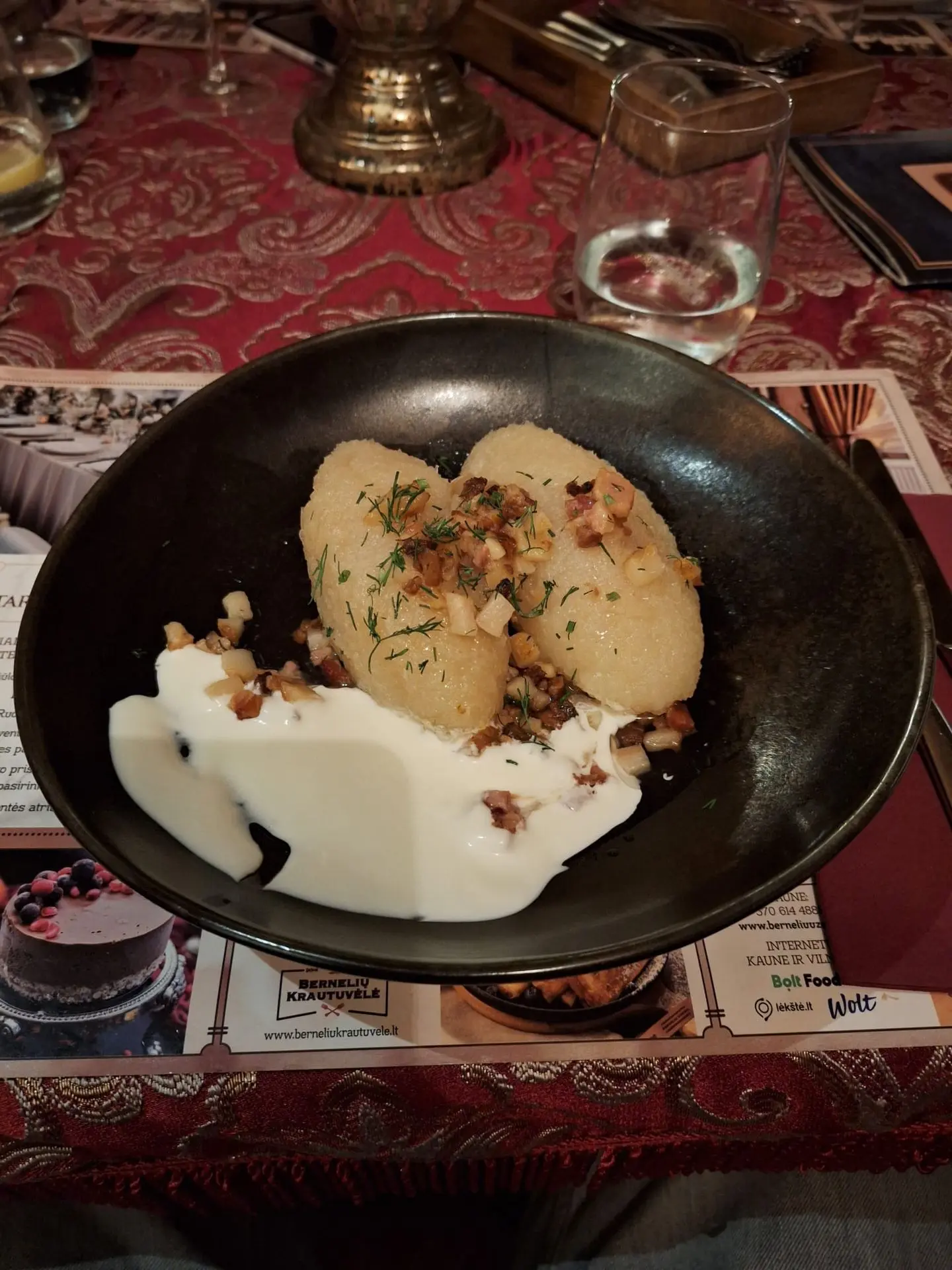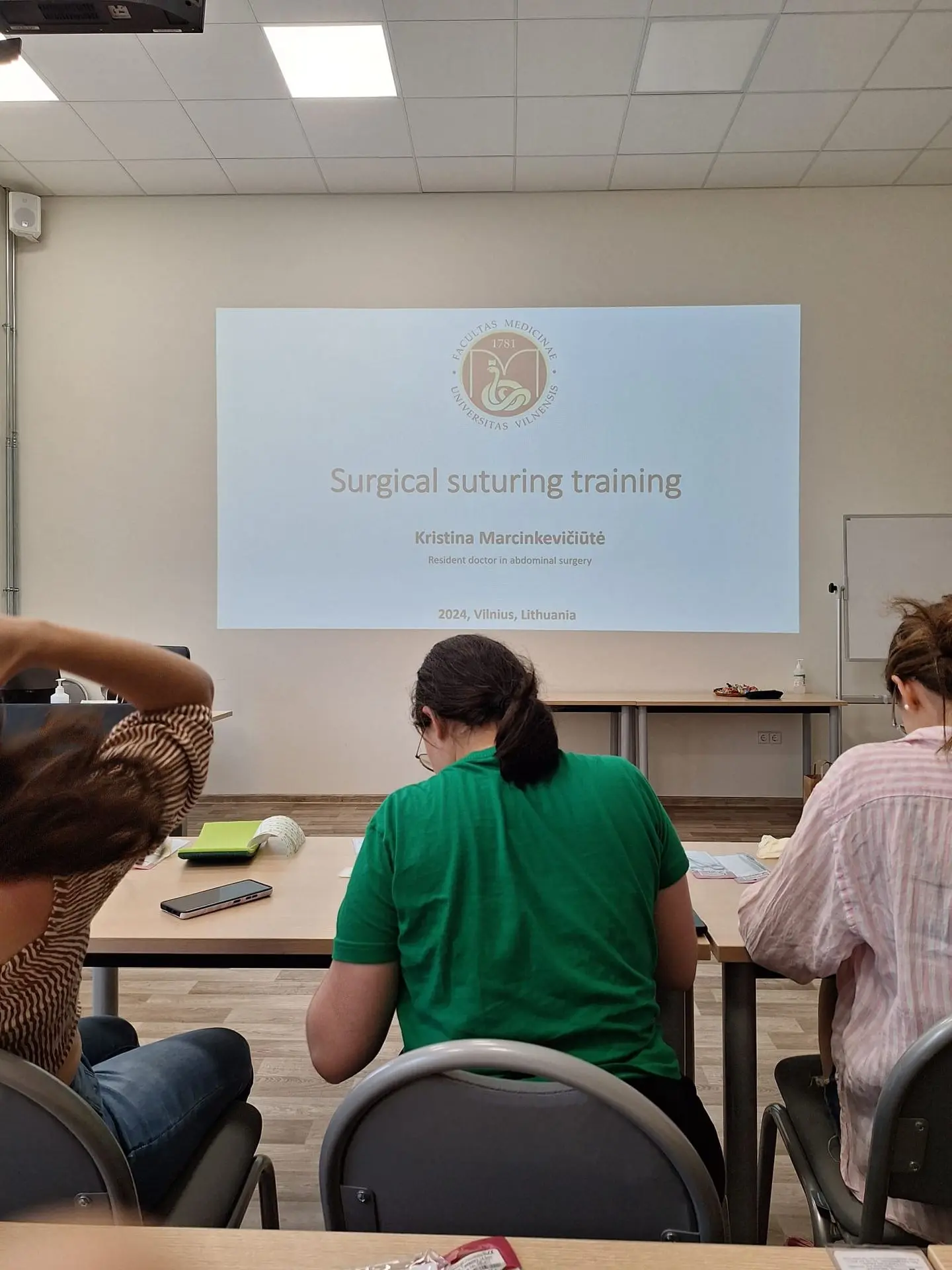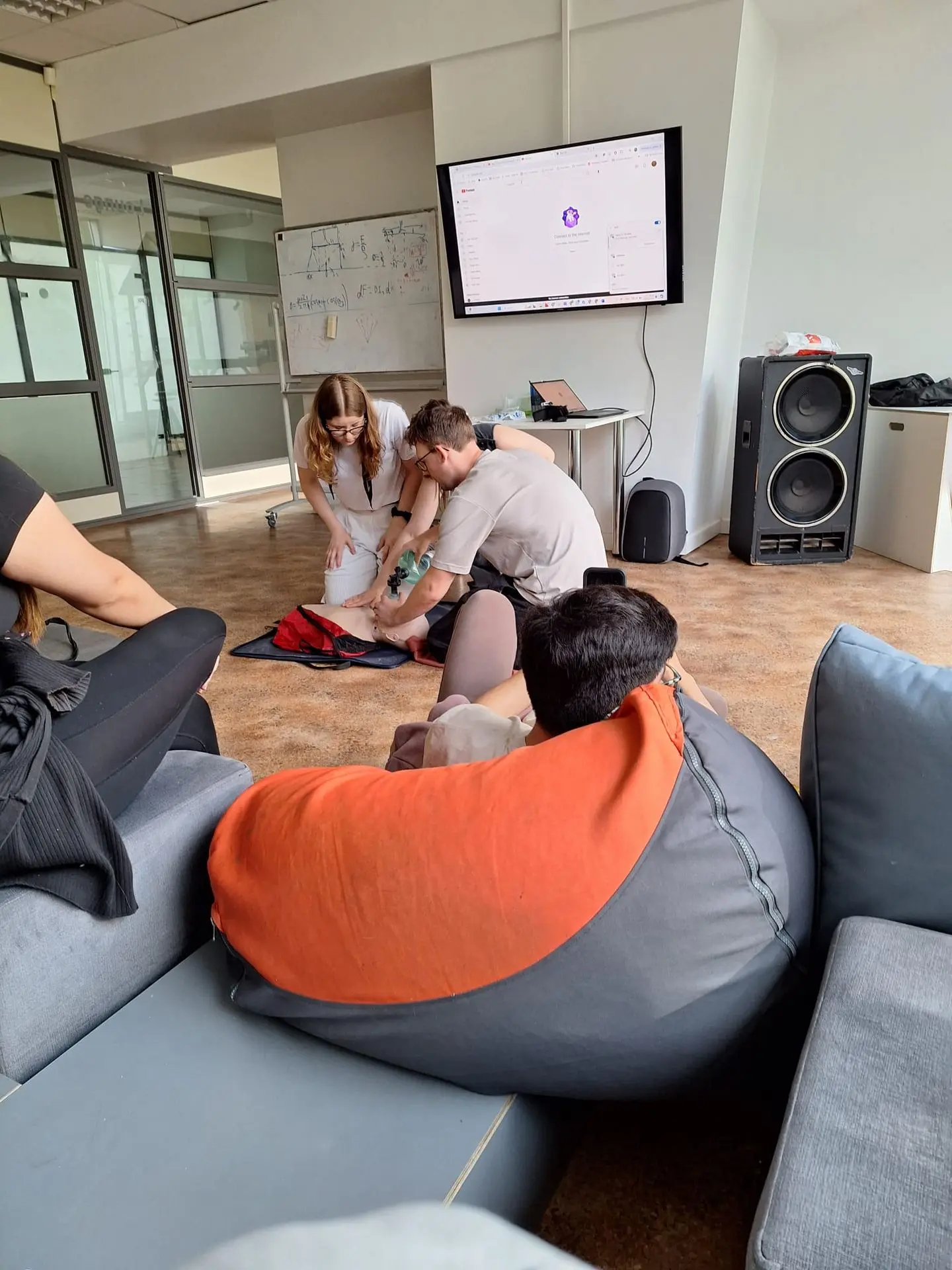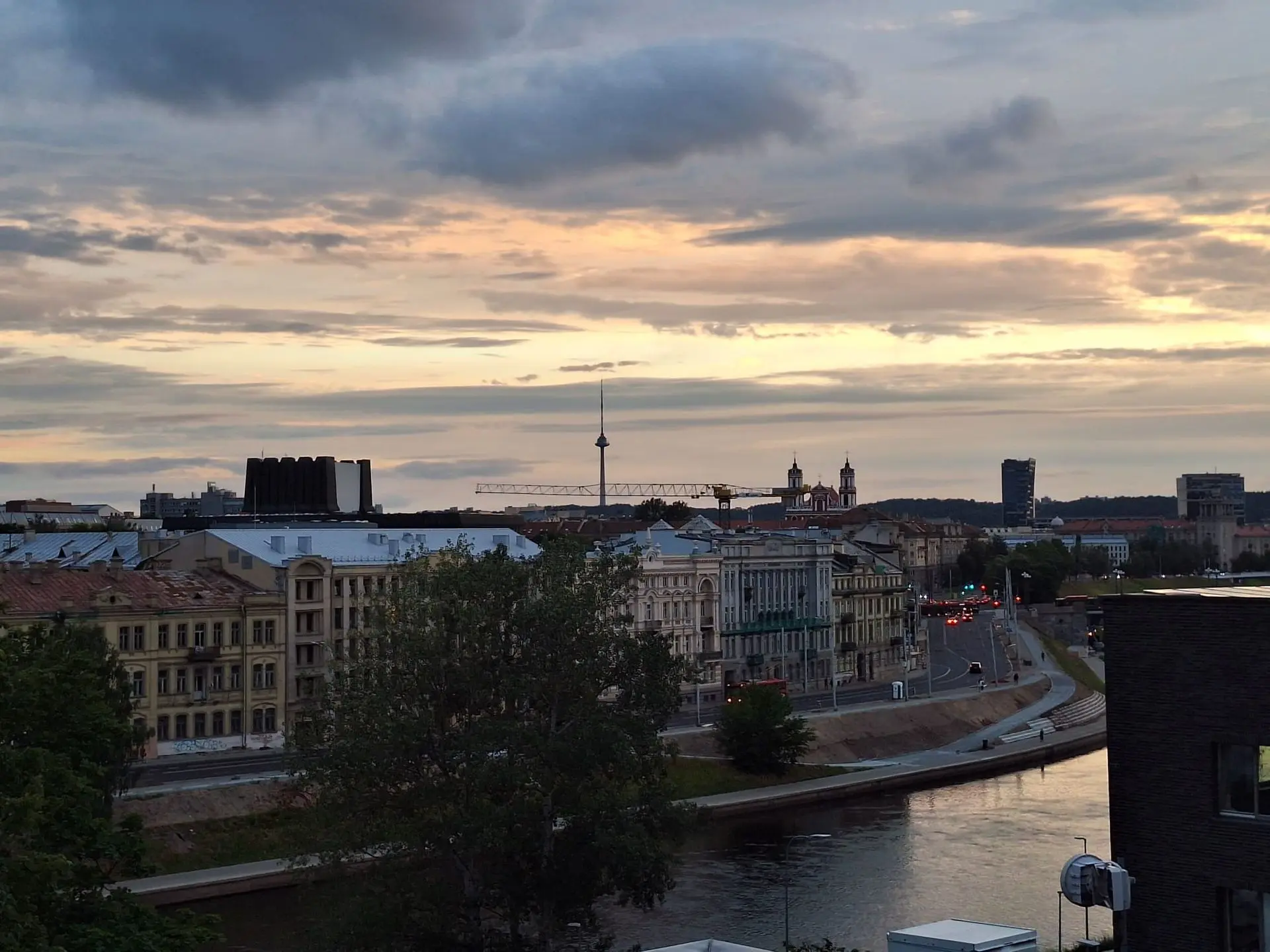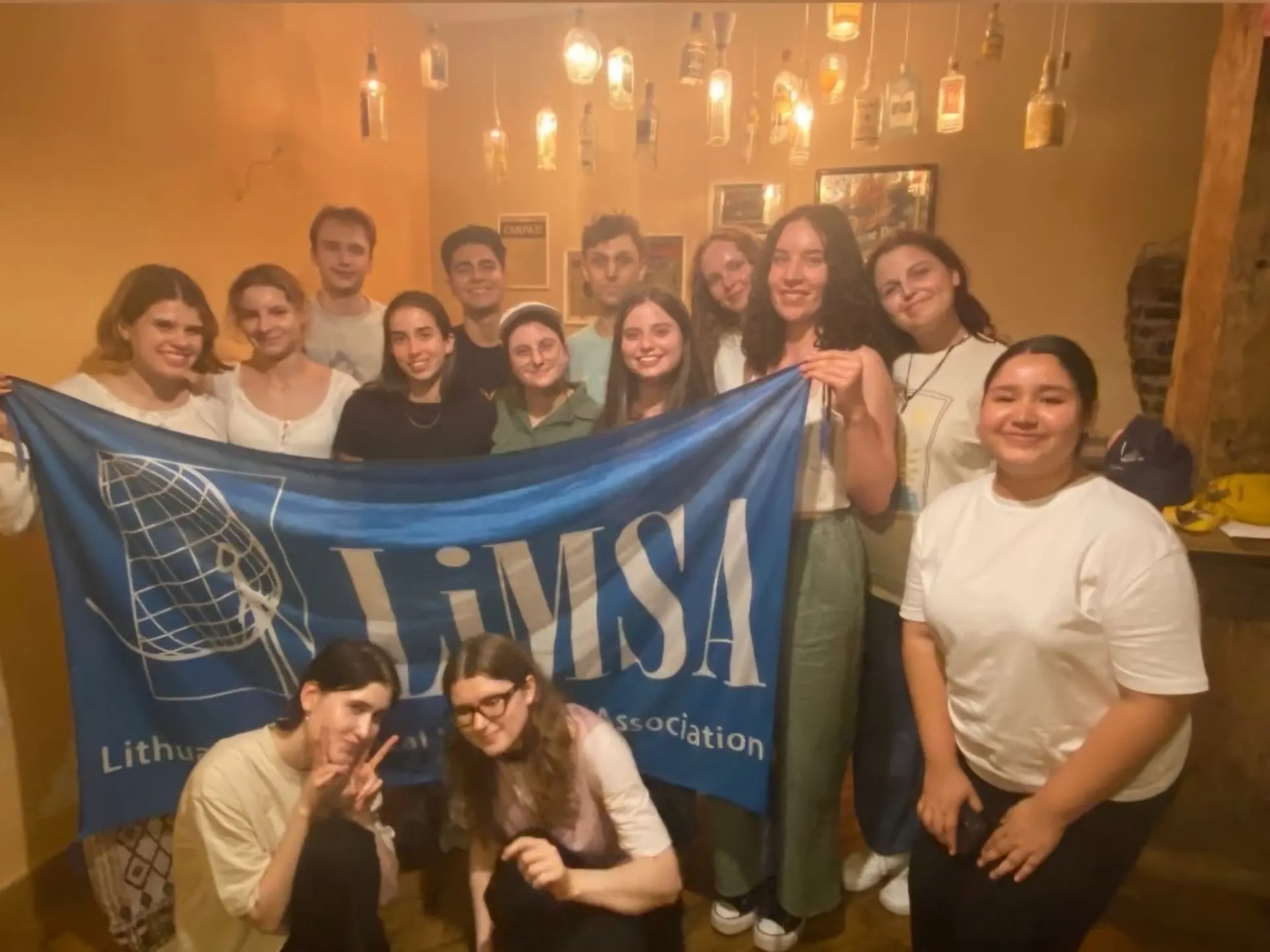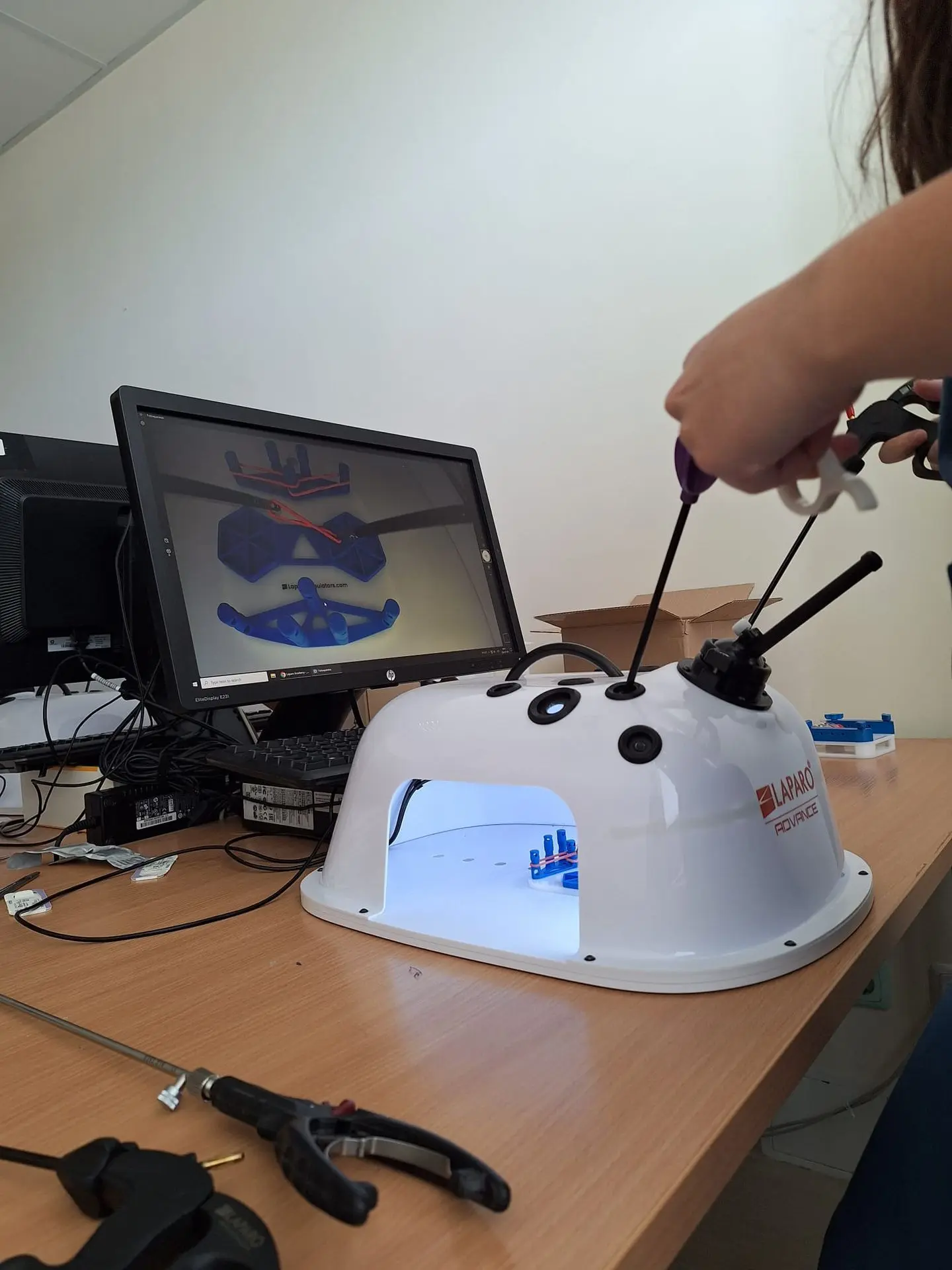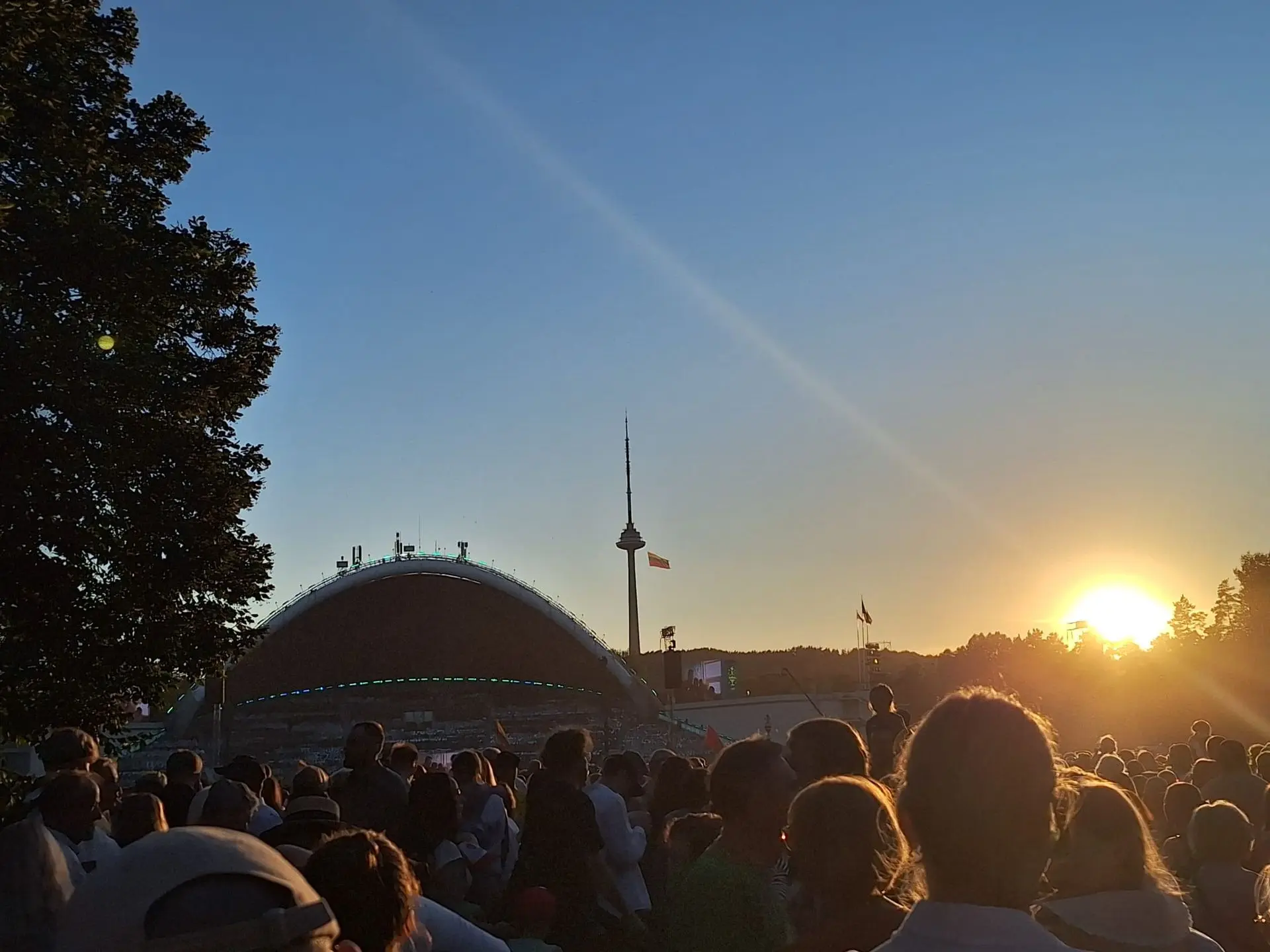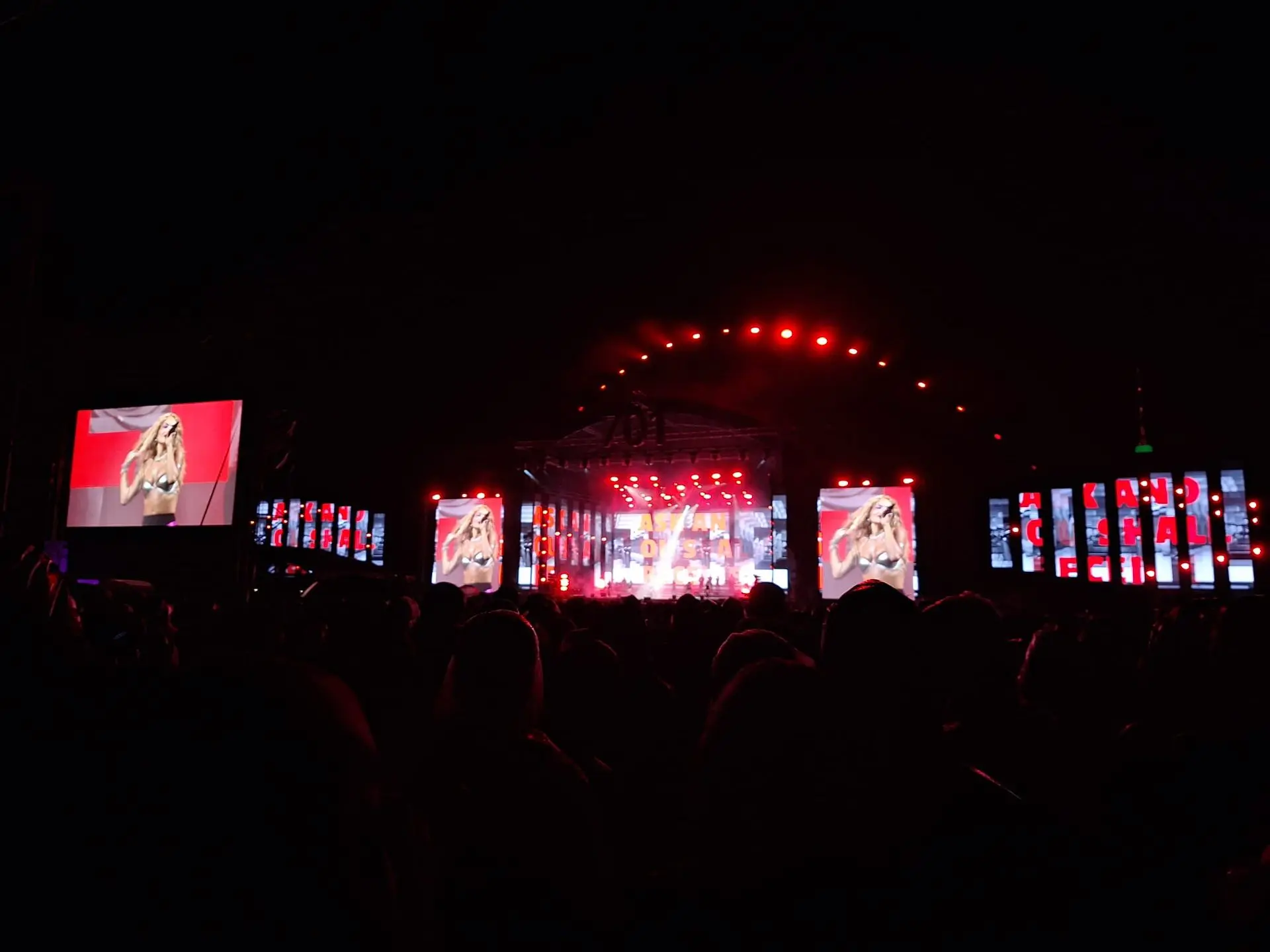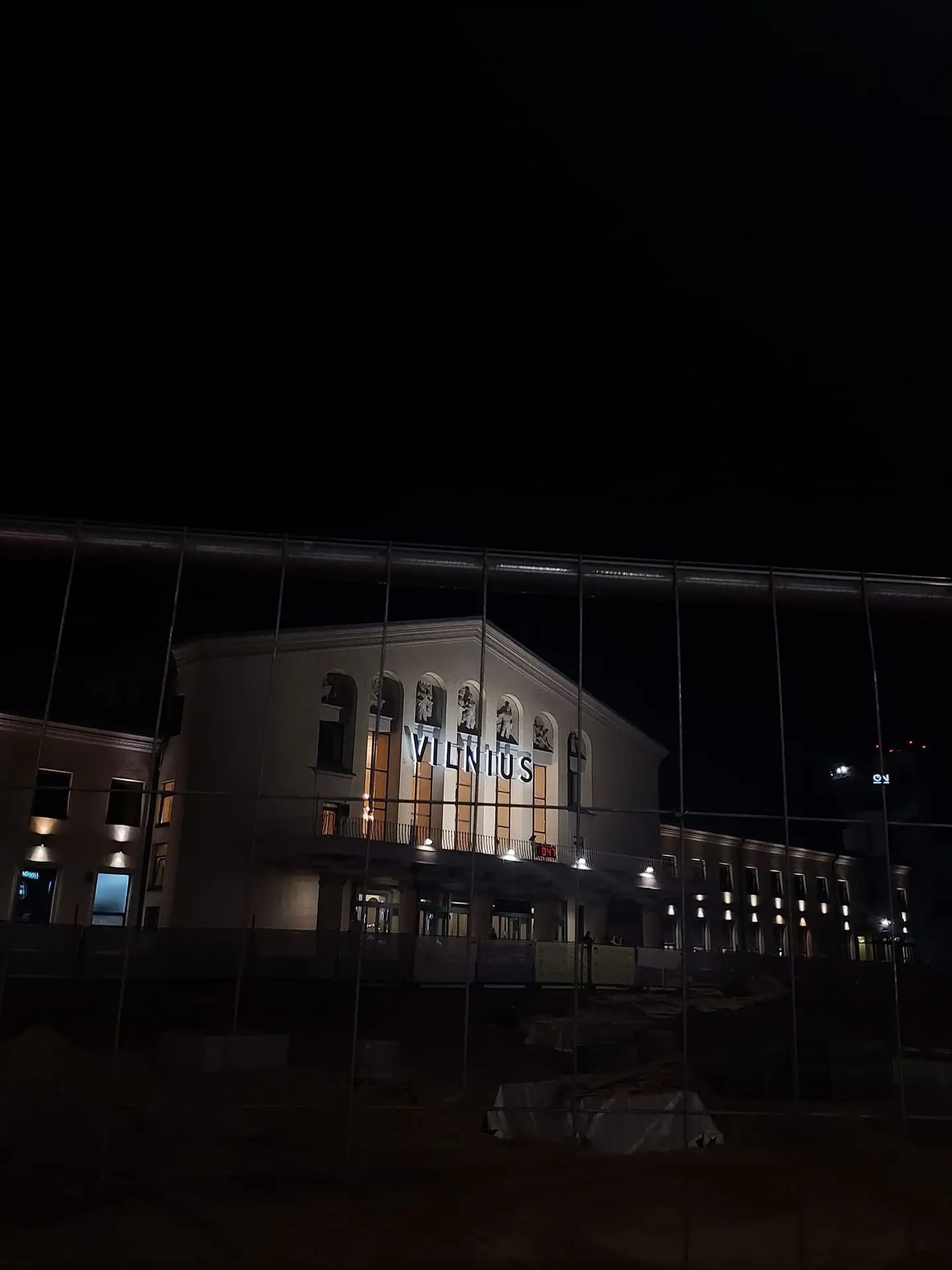July 2024
I spent a month in Vilnius, Lithuania, as part of the SCOPE exchange program. While the experience surely had some ‘downs’, it turned out to be one of the most valuable learning opportunities of my life. Between an internship with an empty agenda, frustrating accommodation, and a healthcare system that operated quite differently from what I was used to, I had to rely a lot on my own initiative. I not only learned from myself, I also learned FOR myself during this month
Lithuania was a beautiful country: more lakes than I could count, huge forest areas, nice people that usually just minded their own business, houses in the mountains that I had only seen in movies, … and one thing Belgium could learn a lot from: super cheap and well-organised public transport!
I Came, I Saw, I Lost My ID
I came to Lithuania a few days early since I wanted to be settled in before starting my internship. I had booked a hostel close to the airport and had already planned my days with hikes and foodspots. In the previous months I had learned some words in Lithuanian, almost learned the map of Vilnius by heart, sent every detail of my travels to my mom (so that she could make sure that a serial killer wouldn’t get me) and looked at every video on social media about the Baltic state. However, that didn’t prepare me for my first–and probably biggest–challenge: losing my identity card at the airport in the dead of night…
Second thing that gave me actual heart palpitations: my contact person (CP) wasn’t coming to get me. Fortunately I had another welcoming party arranged for me, consisting of no less than 3 people! They were the head-CP*, National Officer of Research Exchange (NORE) and some random guy that was there for a reason still unknown. The head-CP had come inside and within 5 minutes she had managed to greet me, gotten me through the whole airport and found my card.
After that I also heard that I already could check in in the dorm, so that I didn’t have to go to my hostel anymore. And who am I to say no to free accommodation? Little did I know…
*Yes, this is an actual thing in Lithuania.
When Your Dorm Feels Like a Reality TV Show
Worst part of my whole internship? Definitely the accommodation. It was a one-hour commute to the hospital. The dorm itself was dirty, there was only one working shower, the washing machine didn’t always work. The kitchen was in a constant state of chaos—dirty dishes piled up, food theft rampant, and to top it off, it was flooded for three days. It felt like staying with 20 of my brothers, which was a huge shock after thinking I was gonna be a month brother-free.
For everyone worried about visiting Lithuania–rest assured, this was a one-time mishap. It was because of a festival happening in the city that month. The people that came the month after me switched dorms.
My biggest regret of the exchange? Waiting too long before discussing this with the LORE of Lithuania. She didn’t do much unfortunately, but after contacting my LORE in Belgium* who then contacted the NORE of Belgium, I did receive a response. However by that time it wasn’t really useful anymore to do anything about it
*Full disclosure: I was the LORE myself at that time, so I contacted the NORE myself. But just wanted to make sure that you guys follow the right protocol (which is to NEVER contact the NORE directly).
A Love Letter to Lithuanian Buses
One of the logistical aspects that actually worked well was the public transport system. It was cheap (like 5€ for a month), had huuuuge buses, had a tv with the live timetable at almost all the stations and was very easy to use.
Surgery, Confusion, and the Art of Asking for Something to Do
Now for the part some of you probably want to go on a SCOPE exchange: the internship. I was placed in the pediatric surgery department which was my first choice. Was this because of a deep passion for surgery? Not exactly. I simply feared that language barriers would make consultations harder to follow. However this was a completely wrong assumption. The exchange students in oncology and hematology for example had awesome doctors that explained every single detail to them.
The organisation in my department was not optimal. We were with 3 exchange students in a department that had very few surgeries during the summer. We still saw a lot of cool surgeries, had contact with A LOT of different doctors, performed about 100 abdominal exams on patients with appendicitis, even spent a few days rotating with 2 Lithuanian students … And we were able to use the laparoscopic simulator any time we wanted. I learned how surgery functions in a hospital (since I had never seen several live surgeries). I learned to communicate with patients who were not able to communicate back: because of their age or because of a language barrier. And most importantly I learned to take a lot of initiative, otherwise I would’ve gone home after 2 hours every day. Instead when our resident didn’t have anything useful for us, we asked other doctors if we could follow them, we asked for the schedule, we asked questions about their healthcare and experiences.
Our work days were shorter than they would have been in Belgium, but this gave me the chance to explore the city and its beautiful outskirts.
United Nations of Exchange Students
Now I already said how Lithuania is a beautiful country. If you want to know more, just look up some pictures. Besides seeing the awesome scenery and swimming in the coolest lake: I learned Lithuanians have a potato obsession, I got to know their complicated relationship with Russia, I saw a lot of historical sites, I learned that I don’t magically love every Lithuanian but that they all have different personalities, …
One of the biggest perks of the exchange? You don’t just immerse yourself in one new culture—you experience many, thanks to the diversity of fellow exchange students. My roommates were Brazilian and Mexican, the students in my department were Maltese, and then you still had a Hungarian boy, Spanish girl, an extra Maltese girl and 2 Austrians (of which one was actually German).
How Not to Screw Up Your Exchange
One thing I would’ve loved was some advice from someone who learned the hard way. So here you go:
- Check your vaccinations well in advance, even for EU-countries. For Lithuania the tick-borne encephalitis vaccine was recommended, however I heard about this pretty late so I didn’t really have the time to do it anymore.
- Learn a few words from the language of your country. The doctors, nurses, patients and other Lithuanians appreciated it SO MUCH when saying good morning in Lithuanian (labas rytas), or thank you (ačiū → like a sneeze).
- Check out local events and festivals in advance. During my month in Lithuania, I discovered a festival happening in Vilnius, and on my final night, I even caught a huge concert in the park. And that is how I got a free concert of Rita Ora in the rain, which was the craziest goodbye with the other exchange students.
- Take some paracetamol with you! Now this could also just have been me making a stupid mistake. But please take it with you. I had to use some Maltese medication and the amount of caffeine made sure I didn’t sleep for hours.
What Lithuania Taught Me (Besides How DeLijn* should be)
Despite the lack of proper structure, I walked away from this experience with valuable skills and insights. I learned the basics of laparoscopic techniques, improved my ability to conduct patient rounds, and got a clearer picture of hospital dynamics. More importantly, I learned how crucial it is to take initiative. Had I waited around for guidance, I wouldn’t have gained much at all.
The cultural aspect was just as interesting. Even though Lithuania is a European country like Belgium, the differences in communication style were striking. Their directness sometimes felt harsh, but in certain situations, it was actually very effective.
*For our Wallonians and other non-Flemishers: that is the Flemish bus company
Would I recommend Lithuania for an exchange? Absolutely—but only if you’re independent and proactive, as you can’t expect everything to be arranged for you. The challenges pushed me to grow in ways I never expected, and for that, I’m grateful. And despite all the difficulties, I’d definitely visit Lithuania again—because as chaotic as my month was, the country itself is undeniably beautiful.
